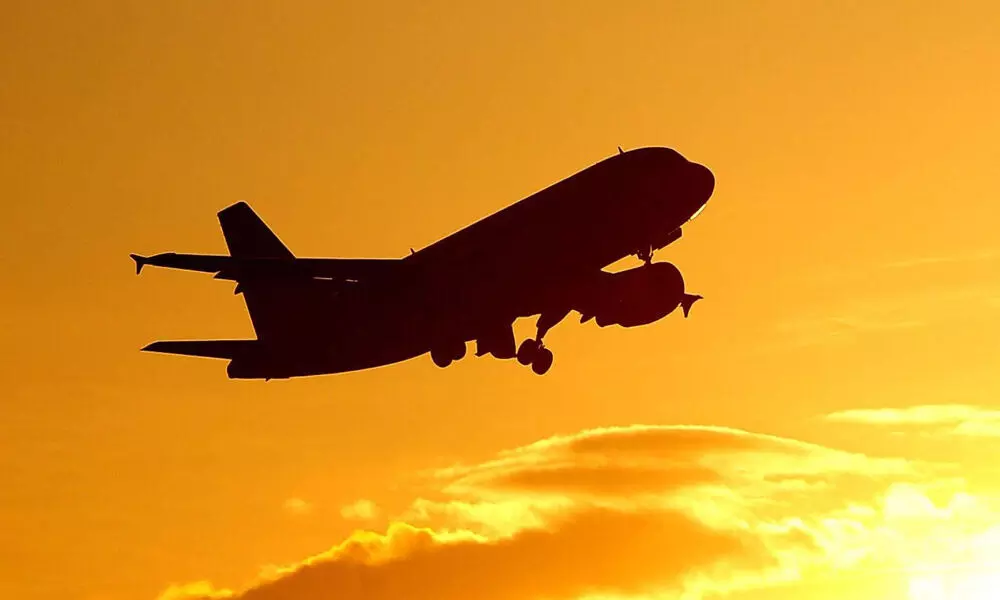India records 6.3 pc rise in domestic flyers at 132.8 lakh in June
India’s domestic air passenger traffic rose to 132.8 lakh in June this year which represents a 6.3 per cent increase over the corresponding figure for June last year and reflects a robust 10.4 per cent jump over the pre-Covid levels, according to an ICRA report released on Tuesday
image for illustrative purpose

New Delhi, July 9: India’s domestic air passenger traffic rose to 132.8 lakh in June this year which represents a 6.3 per cent increase over the corresponding figure for June last year and reflects a robust 10.4 per cent jump over the pre-Covid levels, according to an ICRA report released on Tuesday.
ICRA has maintained a “stable outlook” on the Indian aviation industry amid the continued recovery in domestic and international air passenger traffic, with a relatively stable cost environment and expectations of the trend continuing in FY2025, the report states.
Moreover, the industry witnessed improved pricing power, reflected in the higher yields (over pre-Covid levels) and, thus, the revenue per available seat kilometre–cost per available seat kilometre (RASK–CASK) spread of the airlines.
The momentum in air passenger traffic witnessed in FY2024 is expected to continue into FY2025, though further expansion in yields from the current levels may be limited, the report added.
Despite a healthy recovery in air passenger traffic and improvement in yields, the movement of the latter will remain monitorable amid elevated Aviation Turbine Fuel (ATF) prices and depreciation of the INR vis-a-vis the USD over pre-Covid levels, both of which have a major bearing on the airlines’ cost structure.
Average ATF prices stood at Rs 103,499/KL in FY2024, which was lower by 14 per cent than Rs 121,013/KL in FY2023, but significantly higher by 58 per cent than the pre-Covid level of Rs 65,368/KL in FY2020.
In Q1 FY2025, the average ATF price of Rs 100,776/ KL was higher by 5.4 per cent on a YoY basis.
Fuel cost accounts for 30-40 per cent of the airlines’ expenses, while 45-60 per cent of the operating expenses — including aircraft lease payments, fuel expenses and a significant portion of aircraft and engine maintenance expenses — are denominated in dollar terms.
Further, some airlines have foreign currency debt.
While domestic airlines have a partial natural hedge to the extent of their earnings from international operations, overall, their net payables are in foreign currency.
The airlines’ efforts to ensure fare hikes, proportionate to their input cost increases, will be the key to expand their profitability margins.
The pace of recovery in industry earnings is likely to be gradual owing to the high fixed-cost nature of the business. ICRA expects the Indian aviation industry to report a similar net loss of Rs 30-40 billion in FY2025 as seen in FY2024, which is significantly lower than the level of Rs 170-175 billion in FY2023, as airlines continue to witness healthy passenger traffic growth and maintain pricing discipline.

